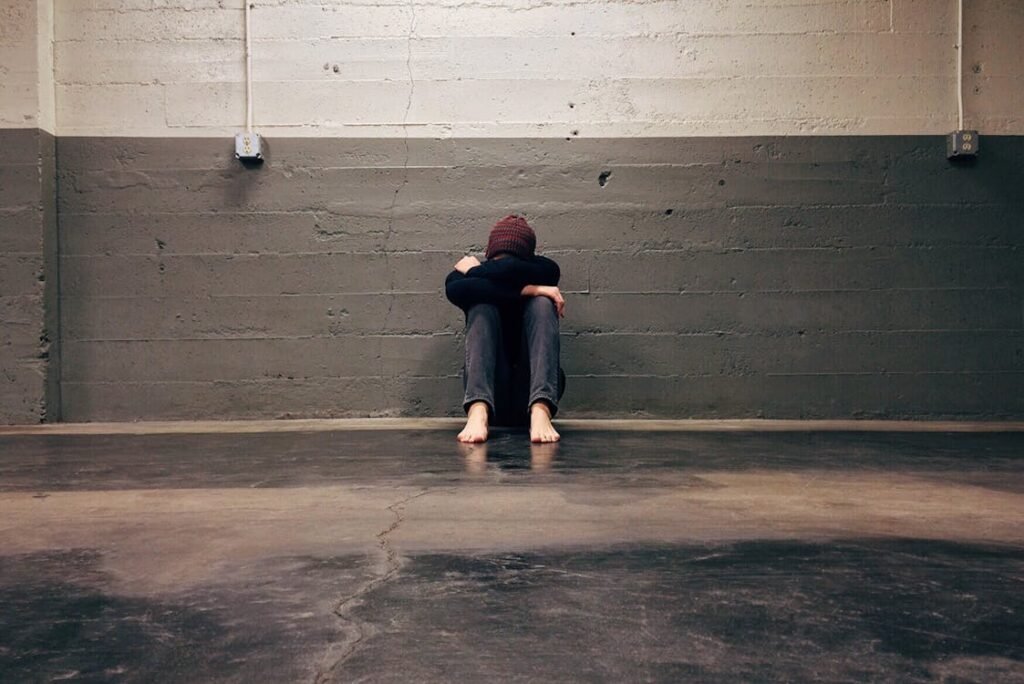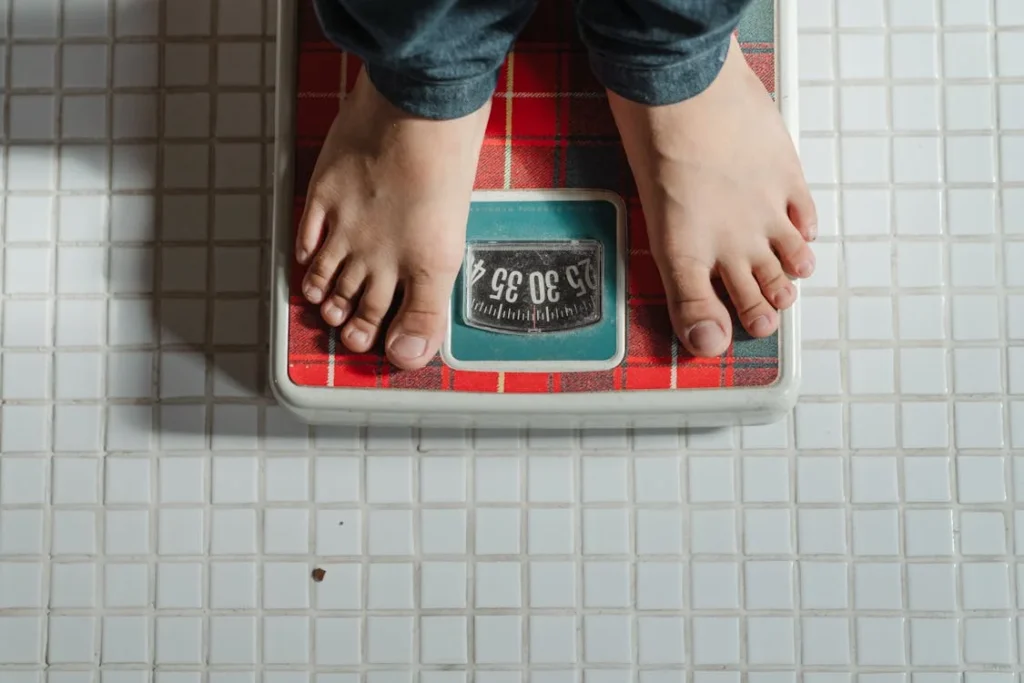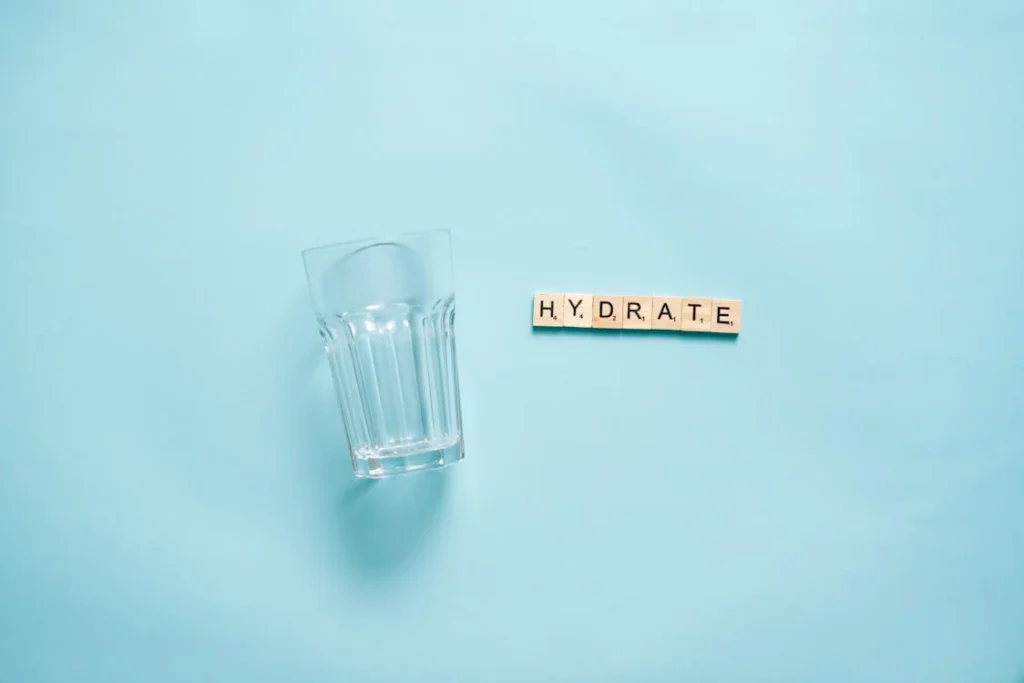Losing a limb is a life-changing experience that affects both the body and mind. While the focus after amputation is often on physical healing and adapting to a prosthetic, many people notice unexpected changes in their appetite. Some may feel less hungry than before, while others experience intense cravings or emotional eating. These shifts can be confusing, especially when paired with the challenges of rehabilitation and lifestyle adjustments.
Appetite changes after limb loss can happen for many reasons. The body’s metabolism may slow down due to reduced movement, or stress and emotions may influence eating habits. Medications, pain levels, and changes in daily routine also play a role in how hungry or full a person feels. Managing these changes is important for overall health, energy levels, and long-term recovery.

Understanding Appetite Changes After Limb Loss
After an amputation, the body undergoes a series of adjustments that can impact appetite in different ways. Some individuals may experience a decrease in hunger, while others may develop a stronger urge to eat.
These changes are influenced by multiple factors, including metabolism, emotional state, and physical activity levels.
The body naturally burns fewer calories after limb loss, especially in the early stages of recovery when mobility is reduced. This decrease in energy expenditure can lead to a reduced appetite, as the body no longer signals for the same amount of food.
On the other hand, for those who engage in physical therapy and learn to use a prosthetic, energy demands may increase, leading to hunger spikes. Understanding these fluctuations can help individuals make informed choices about their diet.
Pain and medications also play a significant role in appetite regulation. Painkillers, especially opioids, can cause nausea or suppress hunger, making it difficult to eat regular meals.
In contrast, certain medications may increase appetite, leading to unintended weight gain. Being aware of these effects allows individuals to adjust their food intake accordingly and avoid drastic weight fluctuations that could impact mobility and prosthetic use.
Emotions are another powerful influence on appetite. The emotional toll of limb loss can lead to changes in eating habits.
Some individuals may experience stress-related loss of appetite, while others may turn to food for comfort. Emotional eating can lead to excessive calorie intake and unhealthy food choices, making it important to find healthier ways to cope with stress.
Recognizing emotional triggers can help in developing mindful eating habits that support long-term well-being.
The Connection Between Appetite and Physical Activity
Physical activity is closely linked to appetite, and changes in mobility after limb loss can significantly impact hunger levels. When movement is limited, the body requires fewer calories, and as a result, appetite may decrease.
However, as rehabilitation progresses and individuals engage in physical therapy, energy needs increase. This can lead to sudden hunger spikes, which may feel unusual compared to pre-amputation eating patterns.
For those adjusting to a prosthetic limb, the body expends additional energy to compensate for balance and movement. Walking with a prosthetic requires more effort than walking with two natural limbs, which can increase calorie needs.
Recognizing this shift is essential to ensure that the body receives enough nutrients for strength and endurance.
It is important to match food intake with activity levels. Eating too little can result in fatigue, muscle loss, and delayed healing, while excessive eating without proper activity can lead to unwanted weight gain.
Maintaining a steady balance by listening to the body’s hunger cues and adjusting portion sizes accordingly helps promote long-term health and mobility.
Hydration also plays a crucial role in appetite regulation. Many people mistake thirst for hunger, leading to unnecessary snacking.
Drinking enough water throughout the day supports digestion, prevents dehydration, and helps regulate appetite. Staying hydrated is especially important for amputees, as proper fluid balance supports circulation and prevents complications such as swelling in the residual limb.

Emotional Eating and Psychological Factors Affecting Appetite
Appetite is not just controlled by physical hunger; emotions have a powerful influence on eating habits. After limb loss, individuals experience a wide range of emotions, from grief and frustration to anxiety and hope.
These emotional changes can directly impact appetite, leading to either a loss of interest in food or an increased urge to eat for comfort. Understanding these psychological factors can help amputees manage their eating habits in a healthy and balanced way.
The Impact of Stress and Anxiety on Appetite
Stress affects the body in many ways, including how it processes hunger. When experiencing stress, the body releases cortisol, a hormone that can either suppress or increase appetite depending on the individual.
Some people may feel too overwhelmed to eat, while others may find themselves craving high-calorie, sugary foods that provide temporary comfort.
Anxiety, which is common during the transition to post-amputation life, can also interfere with digestion. Feelings of nervousness or worry can slow down the digestive system, leading to nausea or an upset stomach that makes eating unappealing.
On the other hand, chronic stress can cause the body to seek out more food as a way to feel a sense of control or relief. Recognizing these patterns is the first step toward managing stress-related appetite changes.
Finding alternative ways to handle stress can help regulate appetite and prevent unhealthy eating habits. Activities such as meditation, deep breathing exercises, or engaging in hobbies can reduce stress levels and prevent emotional eating.
Speaking with a therapist or joining a support group for amputees can also provide emotional relief and guidance in adjusting to new lifestyle changes.
Depression and Appetite Suppression
Depression is another factor that can affect appetite after limb loss. Feelings of sadness, isolation, or loss of purpose can lead to a significant decrease in hunger, causing some individuals to skip meals or eat too little.
This lack of proper nutrition can lead to weight loss, muscle weakness, and decreased energy levels, making recovery and rehabilitation even more challenging.
When appetite is suppressed due to depression, it is important to create a structured eating routine. Even if there is no strong desire to eat, having small, nutritious meals at regular intervals can help the body receive the necessary nutrients for healing.
Opting for easy-to-digest foods, such as smoothies, soups, or nutrient-dense snacks, can make eating feel less overwhelming while still providing essential nourishment.
Overcoming Emotional Eating Patterns
For some individuals, food becomes a source of comfort after amputation. Emotional eating often involves consuming large amounts of high-fat, high-sugar foods that trigger dopamine release in the brain, creating a temporary sense of pleasure or relief.
However, these foods do not provide long-lasting satisfaction and can lead to weight gain, energy crashes, and digestive issues.
To break the cycle of emotional eating, it is important to develop a mindful approach to food. Identifying triggers—whether boredom, stress, or sadness—can help create alternative coping strategies. Instead of reaching for snacks, engaging in movement, journaling, or connecting with loved ones can provide emotional support without relying on food.
Building a healthy relationship with food after limb loss takes time and self-awareness. By recognizing the psychological factors influencing appetite and making intentional choices, amputees can develop a balanced approach to eating that supports both their physical recovery and emotional well-being.

Rebuilding a Healthy Relationship with Food After Limb Loss
Adjusting to appetite changes after an amputation is not just about managing how much food is eaten—it is also about developing a healthy relationship with food. Many people experience frustration when their eating habits no longer feel familiar, especially when faced with unexpected cravings, loss of appetite, or emotional triggers.
Learning to reconnect with hunger cues, nourish the body with the right foods, and enjoy meals again can make a significant difference in overall well-being.
Recognizing Hunger and Fullness Cues
After limb loss, some individuals struggle with recognizing when they are truly hungry or full. This is partly due to changes in metabolism, medication side effects, or emotional adjustments.
Ignoring hunger signals can lead to undereating, while eating out of habit or boredom may lead to unnecessary weight gain.
A mindful approach to eating can help rebuild awareness of these cues. Paying attention to how the body feels before, during, and after meals can provide insight into true hunger levels.
Hunger often presents itself as a gradual sensation, including a growling stomach, lightheadedness, or difficulty concentrating. Emotional hunger, on the other hand, comes suddenly and is often linked to cravings for specific comfort foods rather than a true need for nourishment.
Eating slowly and without distractions can also make it easier to recognize fullness signals. When meals are rushed, it is easy to overeat before the brain has a chance to register that the body has had enough.
Taking time to enjoy the flavors and textures of food can make eating a more satisfying experience while also preventing digestive discomfort.
Choosing Nutrient-Dense Foods for Energy and Recovery
The quality of food consumed plays a huge role in energy levels, muscle recovery, and overall health. After amputation, the body requires essential nutrients to support wound healing, muscle strength, and immune function.
Protein is especially important, as it helps with tissue repair and muscle maintenance. Including lean meats, eggs, dairy, beans, and nuts in meals can provide the necessary building blocks for recovery. For those experiencing reduced appetite, protein-rich smoothies or soups can be an easy way to meet daily protein needs.
Complex carbohydrates such as whole grains, fruits, and vegetables provide steady energy throughout the day, preventing energy crashes and fatigue.
These foods also contain fiber, which supports digestion and keeps blood sugar levels stable. Simple carbohydrates like processed snacks and sugary drinks, however, can lead to fluctuations in energy and should be limited.
Healthy fats from sources like avocados, olive oil, and fish support brain function and reduce inflammation. Since inflammation can slow down recovery and contribute to phantom limb pain, including anti-inflammatory foods in the diet can improve overall comfort and well-being.
The Role of Routine in Stabilizing Appetite
Creating a consistent meal schedule can help regulate appetite and prevent extreme hunger or overeating. After amputation, some individuals may struggle with irregular eating patterns due to changes in mobility, rehabilitation schedules, or emotional factors.
Having set mealtimes can provide structure and ensure that the body receives steady nourishment throughout the day.
Even if appetite is low, eating small meals at regular intervals can keep energy levels stable and prevent muscle loss. For those experiencing increased hunger, planning balanced meals ahead of time can help prevent impulsive food choices driven by cravings.
Developing a healthy relationship with food after limb loss takes time and patience. By focusing on hunger cues, making nutritious food choices, and establishing a routine, individuals can regain confidence in their eating habits. With the right approach, food can once again become a source of strength, comfort, and healing.

Managing Weight Changes and Metabolism After Limb Loss
After amputation, many individuals notice changes in their weight and metabolism. Some may experience weight loss due to reduced appetite, while others may gain weight due to lower activity levels or emotional eating. These fluctuations are common and often linked to the body’s adaptation to a new lifestyle.
Understanding how metabolism changes after limb loss and taking steps to maintain a healthy weight can improve energy levels, mobility, and overall well-being.
How Metabolism Adjusts After Amputation
The body’s metabolism, or the rate at which it burns calories for energy, can shift significantly after limb loss. Since there is less muscle mass to maintain, the body may require fewer calories than before.
However, energy needs are not only based on body size—they also depend on activity levels and how much effort is required for movement.
For those who are less active after amputation, a slower metabolism can lead to weight gain if eating habits remain the same as before. On the other hand, individuals who use prosthetics often burn more calories than expected, as walking and balancing with an artificial limb require additional effort.
Understanding these unique energy needs is essential for maintaining a stable and healthy weight.
Balancing Caloric Intake with Activity Levels
One of the biggest challenges after amputation is adjusting food intake to match new activity levels. Eating too little can result in fatigue and muscle loss, while eating too much can lead to unwanted weight gain. Finding the right balance requires paying attention to hunger cues, meal timing, and portion sizes.
Those who have a reduced appetite but need to maintain weight can focus on nutrient-dense, high-calorie foods. Healthy fats, such as nuts, seeds, and avocados, provide essential nutrients and energy without requiring large meal portions.
Smoothies with protein, fruits, and healthy fats can also be a convenient way to consume more calories when appetite is low.
For individuals who are regaining mobility and using prosthetics, energy needs may be higher than expected. In this case, it is important to ensure that meals contain enough carbohydrates, protein, and fats to sustain endurance and prevent muscle fatigue.
Eating balanced meals throughout the day can help stabilize blood sugar levels and maintain steady energy.
Preventing Unhealthy Weight Gain
Weight gain can become a concern if calorie intake remains high while mobility decreases. Carrying excess weight can put extra strain on the joints, making movement more difficult and affecting the comfort of a prosthetic limb.
Preventing unnecessary weight gain is important for maintaining mobility and preventing future health complications.
Choosing whole, unprocessed foods over high-calorie, processed options can make a big difference. Foods rich in fiber, such as vegetables, legumes, and whole grains, help keep the stomach full longer, reducing the urge to snack on unhealthy foods.
Drinking water before meals can also prevent overeating by promoting a sense of fullness.
Regular movement, even if limited at first, helps regulate metabolism and prevent weight gain. Simple activities such as seated exercises, resistance training, or stretching can keep muscles engaged and maintain strength.
As mobility improves, incorporating more structured physical activity can help keep weight in check while improving overall fitness.
Weight changes after limb loss are normal, but managing them effectively can support a smoother transition to an active and independent lifestyle. By listening to the body, making mindful food choices, and adjusting habits as needed, individuals can maintain a healthy weight and feel their best throughout recovery and beyond.

The Importance of Hydration in Appetite and Recovery
Hydration plays a crucial role in managing appetite, digestion, and overall recovery after limb loss. Many people do not realize that dehydration can lead to appetite fluctuations, energy crashes, and even increased feelings of hunger.
For amputees, staying hydrated is even more important because it supports circulation, helps prevent swelling in the residual limb, and aids in digestion.
How Dehydration Affects Appetite
The body sometimes confuses thirst with hunger, leading to unnecessary snacking and overeating. This happens because the same part of the brain that signals hunger also controls thirst.
When dehydrated, a person may feel tired, sluggish, or even experience mild headaches—symptoms that are often mistaken for hunger. Drinking water throughout the day can help regulate appetite and prevent unnecessary calorie intake.
On the other hand, dehydration can also cause a loss of appetite. When the body lacks enough fluids, digestion slows down, and the stomach may feel full even when the body needs nutrients. This can be problematic for amputees who already struggle with reduced hunger, making it harder to get essential nutrients for recovery.
Hydration and Digestive Health
Drinking enough fluids helps with digestion by keeping food moving through the stomach and intestines. After amputation, some people experience constipation due to changes in mobility, medications, or reduced food intake.
Not drinking enough water can worsen this issue, leading to discomfort and bloating. Fiber-rich foods, such as fruits, vegetables, and whole grains, work best when paired with adequate hydration. Without enough fluids, fiber can cause further digestive blockages instead of promoting smooth digestion.
Hydration also plays a role in nutrient absorption. Water helps transport vitamins and minerals throughout the body, ensuring that the nutrients from food are effectively used for muscle repair, immune function, and energy production. Staying hydrated supports faster healing and better overall health.
Maintaining Proper Hydration Levels
A common recommendation is to drink at least eight glasses of water per day, but individual hydration needs vary based on activity levels, climate, and overall health. Amputees who are active, undergoing physical therapy, or using a prosthetic limb may require more water due to increased exertion and sweating.
Drinking small amounts of water throughout the day is more effective than consuming large amounts at once. Keeping a water bottle nearby and sipping regularly can help maintain hydration without overwhelming the digestive system.
Herbal teas, infused water with fruit, and water-rich foods like cucumbers and oranges can also contribute to hydration.
For those who struggle to drink enough water, setting reminders on a phone or using a marked water bottle with hourly goals can be helpful. Paying attention to urine color is another simple way to gauge hydration levels—light yellow urine typically indicates proper hydration, while dark yellow or amber-colored urine suggests a need for more fluids.
Proper hydration is essential for managing appetite, maintaining digestive health, and supporting the recovery process after limb loss. By making hydration a priority, amputees can improve their energy levels, digestion, and overall well-being.

Adapting Eating Habits to Support Long-Term Health
Managing appetite changes after limb loss is not just about short-term adjustments—it is about building sustainable eating habits that support long-term health and well-being.
A balanced diet plays a crucial role in maintaining strength, preventing complications, and ensuring the body has the energy needed for daily activities and physical rehabilitation. Understanding how to adapt eating patterns over time can help amputees maintain a healthy lifestyle and avoid common nutritional pitfalls.
Developing a Consistent Meal Routine
One of the most effective ways to manage appetite changes is by establishing a regular meal schedule. Irregular eating patterns can make it harder for the body to regulate hunger signals, leading to skipped meals or overeating.
By setting consistent meal times, the body becomes accustomed to receiving nourishment at predictable intervals, making it easier to recognize true hunger and fullness cues.
Even if appetite is low, eating small, nutrient-dense meals throughout the day can help prevent energy dips and support metabolism.
For those experiencing increased hunger, structured meal planning can prevent impulsive eating and encourage balanced food choices. Keeping meals simple yet nutritious ensures that eating does not feel overwhelming, especially during the adjustment period after amputation.
Adjusting Portion Sizes to Match Energy Needs
Portion control is important for maintaining a healthy weight and ensuring the body receives the right amount of nutrients. Since energy needs can fluctuate due to changes in activity levels, adjusting portion sizes based on physical demands can help prevent both overeating and undereating.
For those who are less active, smaller meals with high-quality proteins, healthy fats, and fiber can provide sufficient energy without excess calories. On the other hand, individuals engaging in physical therapy or increasing their mobility may require larger meals to meet their higher energy demands.
Paying attention to how the body feels after meals can provide insight into whether portion sizes are appropriate.
Making Mealtime Enjoyable and Stress-Free
For some amputees, eating can become stressful due to changes in appetite, emotional factors, or difficulty preparing meals. Creating a positive and relaxed eating environment can improve the overall experience and make it easier to maintain healthy habits.
Enjoying meals with family or friends, listening to music, or engaging in mindful eating practices can make food more enjoyable. Focusing on the flavors, textures, and aromas of meals can enhance satisfaction and prevent mindless eating.
If preparing food feels challenging, opting for simple, nutritious meals that require minimal effort can reduce stress while still providing essential nutrients.
For those who struggle with cooking, seeking support from loved ones or using meal delivery services that offer healthy options can help ensure consistent nourishment. Having easy-to-prepare snacks, such as yogurt, nuts, or fruit, readily available can also prevent skipping meals due to lack of time or motivation.
Long-Term Nutritional Strategies for a Healthy Future
Over time, the body adapts to life after limb loss, and appetite patterns may stabilize. However, continuing to prioritize nutrition remains essential for overall health and quality of life. Regular check-ins with a healthcare provider or nutritionist can help ensure that dietary choices align with evolving needs.
As physical activity levels change, adjusting food intake accordingly ensures that the body remains strong and energized. Staying mindful of how emotions impact eating habits and finding alternative coping mechanisms for stress or anxiety can prevent unhealthy patterns from developing.
By embracing a balanced approach to eating, amputees can maintain a strong, healthy body and feel confident in their long-term well-being. Proper nutrition is not just about managing appetite—it is about creating a lifestyle that supports both physical and emotional health for years to come.
Conclusion
Managing appetite changes after limb loss is a journey of understanding the body’s evolving needs and developing a balanced approach to eating. Factors such as metabolism shifts, emotional adjustments, and changes in activity levels all influence hunger and eating patterns. By recognizing these shifts and making mindful food choices, amputees can maintain strength, energy, and overall well-being.
Establishing a consistent meal routine, staying hydrated, and listening to true hunger cues help create a stable relationship with food. Prioritizing nutrient-dense meals supports recovery, prevents unwanted weight changes, and enhances daily function. Addressing emotional eating and finding alternative coping strategies also ensures that food remains a source of nourishment rather than stress.
As the body adapts, long-term nutritional habits become key to maintaining mobility and health. A thoughtful, balanced diet empowers amputees to feel in control of their well-being, supporting both their physical and emotional resilience. With the right approach, nutrition becomes a powerful tool for healing, recovery, and a fulfilling, active life.



